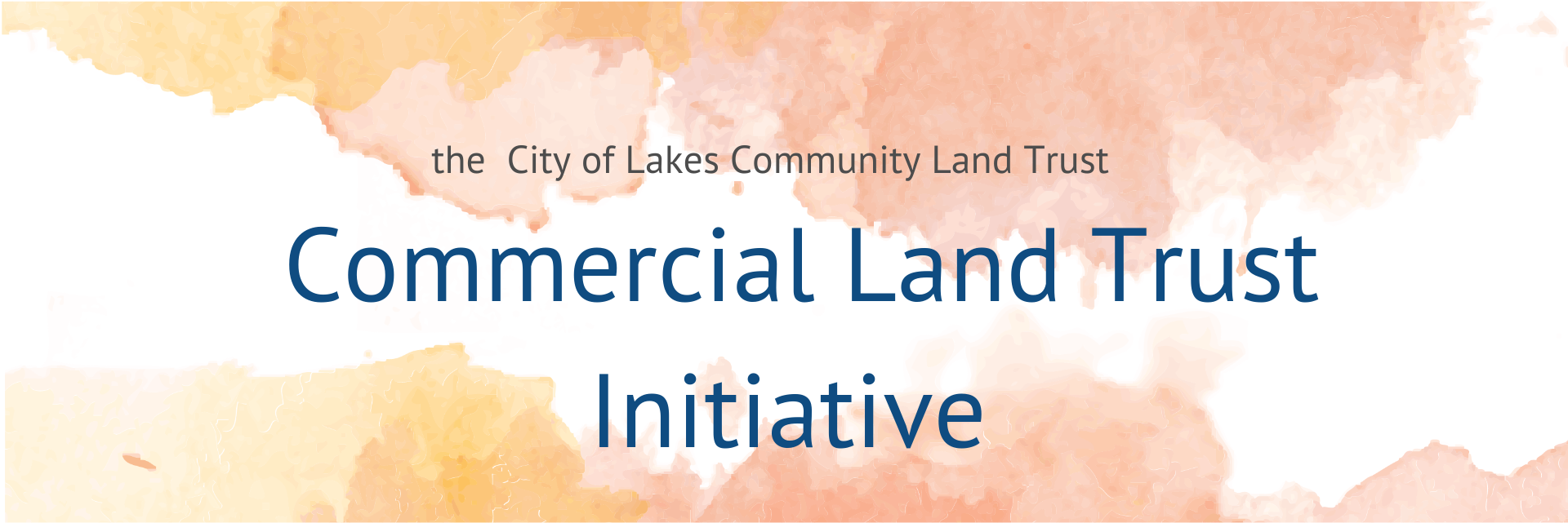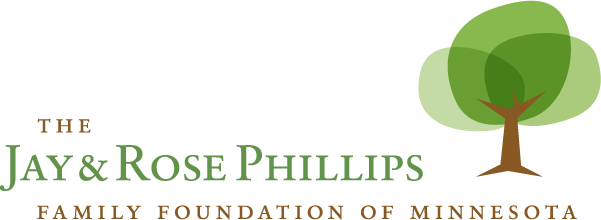
It feels like a lifetime ago (maybe two) when I posted the last blog about the Commercial Land Trust Initiative. Yet, it was just about a year and a half ago. And what a year and a half it’s been… between the ongoing global pandemic and the uprising following George Floyd’s murder, it’s safe to say that 2020 has been a challenge.
It’s also been a year that has further revealed the devastating impacts of a capitalist economic system. For decades, many have denounced the failures of trusting the “private market” to solve for our most basic needs (or more accurately, rights) like housing and healthcare. Now, this realization is more widespread. As a result, economic strategies that put people over profit are taking center stage, and those strategies include the land trust model. Locally, the Commercial Land Trust Initiative has been lifted up as a potential avenue to “rebuild.”
Let me explain.
At this point, we have irrefutable evidence of the racial wealth gaps in the United States. COVID-19 showed us just how wide those gaps truly are. While white affluent communities seamlessly transitioned to the “shelter in place” order, the working poor and especially Black, Indigenous and people of color (BIPOC) either lost their jobs or were forced to put their very lives in jeopardy to work on the frontlines. While SOME individuals received a $1,200 stimulus check, the largest/wealthiest corporations saw hundreds of millions in bailouts. A true welfare system for the upper classes. Meanwhile, BIPOC-owned businesses are left to fend for themselves, navigating ridiculous layers of red tape to get even a little relief, which in most cases has been wildly insufficient.
While coronavirus cases steadily rise, states across the nation are relaxing “stay at home” orders to get the economy going again. At the close of May 2020, MN was one of the states slowly loosening restrictions. Overnight, our national focus shifted from the pandemic, when Mr. George Floyd was smugly and brutally murdered by four Minneapolis Police Officers. What ensued is a powerful and explosive uprising, a flashpoint in a long multigenerational struggle affirming that Black Lives Matter. Days of protest led to historic progress towards reimaging public safety.
But what does all of this have to do with the commercial land trust?
EVERYTHING.
In the midst of all of this chaos, we’ve seen individuals, communities and institutions come together to provide food, supplies, shelter, and cash- proving that the tenets of community care and mutual aid exist deep within us. These are manifestations of a society many believe can exist at a broad scale. it’s no coincidence that we are seeing more and more worker-owned businesses and more cities struggling with unchecked gentrification and displacement turning to land banks, land trusts, and real estate investment cooperatives. But we need more. We need to shift the conversation and our actions from “let’s expand who has access to the existing system,” to “let’s transform the system itself.” Not tweak, TRANSFORM. In fact, there are years and years of work to build on (a long history of these practices are anchored in Black and Indigenous communities in the US) —read the cooperative solidarity commonwealth system by Jessica Gordon Nembhard to super nerd out.
As we take stock of the damage along key commercial corridors, a number of coalitions are forming to reimagine the future—to rethink how community development happens. So many of those conversations have focused on community ownership, cooperative models, centering equity driven development principles and positioning BIPOC communities as decision makers. How these ideas will come to fruition is still unclear. What is clear to me is that the Commercial Land Trust Initiative (CLTI) can play an important role.
So, what’s the scoop on the CLTI?
Let’s pick it back up where we left off in February 2019—the City of Lakes Community Land Trust’s board had just approved the Commercial Land Trust pilot to move forward as a “program” of the CLCLT. With that approval came the full acknowledgement that while the CLCLT has 15 plus years of experience in residential land trust—commercial real estate and the entrepreneur/business landscape is a whole new world. Therefore, key staff of the CLCLT advocated for an advisory board to be established. I know what you are thinking, an advisory board, huh? What does that mean in terms of real decision-making? What kind of authority does this body really have? Adjacent to the CLCLT board of directors the Advisory Board is, de facto, very autonomous. In fact, the CLTI just drew up a formal Memorandum of Understanding (MOU) that outlines the Advisory Board’s decision-making power and accountabilities.

In April 2019, the inaugural Advisory Board was selected: C. Terrence Anderson, Danielle Mkali, DeVon Nolen, Dr. Tara Watson, Neda Kellogg, Mark Fick, E. Coco (me!), Jackie Mukiibi , Aarica Coleman, and Taylor Cooper. With the Advisory Board in place, the next item of immediate business was to hire a program director who could focus 100% of their time on launching the Commercial Land Trust Initiative. In October 2019, Domonique Jones started as CLTI Program Director. Since having a fulltime staff at the helm of this initiative, the Advisory Board has grown to fill some needed skill gaps. The Advisory Board now also includes: Denetrick Powers, Jimmy Loyd, Davis Senseman, and Edwardo Rikprashad.
In January 2020, the CLTI held its launch event at the Urban Research and Outreach-Engagement Center (UROC), an event attended by over 200 people—the majority were black business owners, but we also saw folks from local government, philanthropy and the nonprofit sector. This was an opportunity to let people know who is leading this effort, to lay out the different ownership models possible through the commercial land trust and gather questions, concerns or ideas from attendees.
Over the course of 2020, Domonique and the Advisory Board have worked hard to raise funds, develop a holistic community engagement strategy, a business application and selection process, refine the MOU and identify a few potential properties to bring into the commercial land trust. It may not seem like a lot, but it really has been and there is much more work ahead. As we collectively move this work forward, we continue to ask questions about our membership structure (what it looks like, what decisions do members make); property acquisition (where, how); sustainability (are there ways to create revolving funds to support the model) and partnerships (who do we need to build coalitions with to strengthen this work). In fact, we will be hosting some focused conversations with folks around these very questions to support the ongoing design. Stay tuned for details on that by following us on Facebook.
To close out, I know a lot of us are feeling that our reality is constantly evolving and shifting under our feet. That’s so real. Amid all of the uncertainty, I am sure about one thing. That if we continue to lead with strong values for racial justice and to work in coalitions that we will continue to build and together, we will win. For the Commercial Land Trust Initiative that means facilitating ownership and wealth building opportunities for Black, Indigenous and POC business owners. It means creating one avenue through which our communities can chart their own course well into the future.
